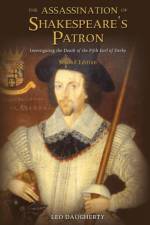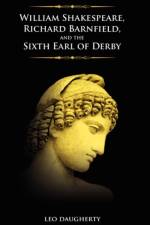- Investigating the Death of the Fifth Earl of Derby (Second Edition)
av Leo Daugherty
1 481
Lord Ferdinando Stanley was the fifth earl of Derby, a leading claimant to the throne. Considered a man who had everything, he was also the patron of the company of players which was fortunate enough to include William Shakespeare. One April Fool's Day, 1594, he was reportedly approached by a witch (one of the famous legion of "Lancashire witches") and they engaged in brief conversation while strolling outside his largest palace, Lathom Hall. Four days later, he fell violently ill. For twelve days he lingered, while four of the best doctors in the country, including the famous Dr. John Case of Oxford, labored in vain to save him.Who killed Lord Stanley and why? Historians started debating that question almost as soon as he died, and outraged gossip was to be heard everywhere in England. This second edition studies the death of Lord Derby within the immediate contexts of Elizabethan power politics, succession mania, passionate religious controversy, the records of prominent families in the North, and the cult of personality just then beginning to become a major factor in the nation's social history. The book's scope also includes subcultural contexts such as Elizabethan poetry (Lord Derby was a pastoral love poet, some of whose work survives), witchcraft, medicine, spy networks, and both approved and disapproved methods of political assassination (with poison being the most frowned upon because of its disreputable "Italianate" connotations).


